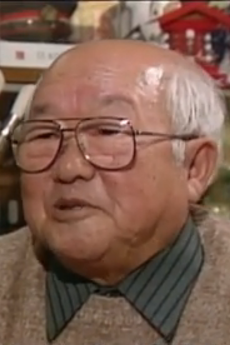
Ryuuichi Yokoyama
横山隆一
3
Birth:Mar 17, 1909
Death:Nov 8, 2001
Age:92
Gender:Male
Hometown:Kochi, Kochi Prefecture, Japan
Blood Type:O
Yokoyama Memorial Manga Museumhttp://www.bunkaplaza.or.jp/mangakan/english/top.html
Ryuuichi Yokoyama was a Japanese mangaka and anime director picture book author essayist sculptor and painter. He was the son of silk wholesalers grew up in Kochi and left for Tokyo after finishing juniorhigh school. In Tokyo he was an apprentice to sculptor Hakuun Motoyama. Inspired by manga published in magazines such as Shinseinen he began to draw manga during his free time. He submitted his work to the magazines and before he knew it he was a regular contributor. Soon he was able to earn a living from drawing illustrations and manga for magazines.
His Edokko Kenchan running since 1936 in the Asahi Shinbuns Tokyo edition had been one of the first manga to be adapted into a liveaction film 1937. The titular Ken was an average Japanese boy although readers favoured the antics of a supporting cast member a mischievous street urchin called Fukuyama Fukutarou. As the star of the spinoff Fukuchan running in the Asahi Shinbuns national edition from October 1936 the character would find enduring fame in manga form until 1971 becoming the mascot of Waseda University and in the war years being put to militarist use. The series was adapted for film television and animation became a national favorite and was awarded the first Children Culture Prize by the Japan Culture Association. It influenced many manga artists of the next generation including Osamu Tezuka and Takashi Yanase. Tezukas drawing of Fukuchan is displayed at the Yokoyama Memorial Manga Museum.
Yokoyama cherished ambitions of becoming an animation studio boss like Walt Disney whom he had met in 1951. With Japanese still restricted from travelling abroad during the Occupation Yokoyama had pulled strings to get himself assigned to cover the San Francisco Conference as a journalist and then spent two days at Disneys studios. A comfortably welloff artist with influential family connections who had enjoyed bestseller status in both the pre and postwar periods Yokoyama had already seen his work adapted into several media including liveaction cinema and postwar radio. The year after the critical success of his experimental cartoon Onbu Obake 1955 Yokoyama started his own animation studio Otogi Pro.
In 1957 they released the eighteenminute movie Fukusuke based on one of Yokoyamas picture books which received the Blue Ribbon Award and the Educational Culture Prize at the Mainichi Film Festival. Animator Shinichi Suzuki described Yokoyamas management and direction at Otogi Pro as haphazard and the production process as experimental. Otogi Pros pinnacle came in 1962 when the TBS television channel broadcast the first of what would be 312 episodes of the animated series Otogi Manga Calendar and its obscure predecessor Instant History 1961 which are regarded as the first animated television series in Japan. However Yokoyama had already taken his animation experiment as far as he desired and did not expand his capacities beyond those required to make Otogi Manga Calendar.
Yokoyama received the Ministry of Education Prize was named Honorary Citizen of Yasu Town Kochi City and Kamakura City and named Person of Cultural Merit. He passed away at age ninetytwo in a hospital in Kamakura City Kanagawa Prefecture due to a cerebral infarction.
Newest